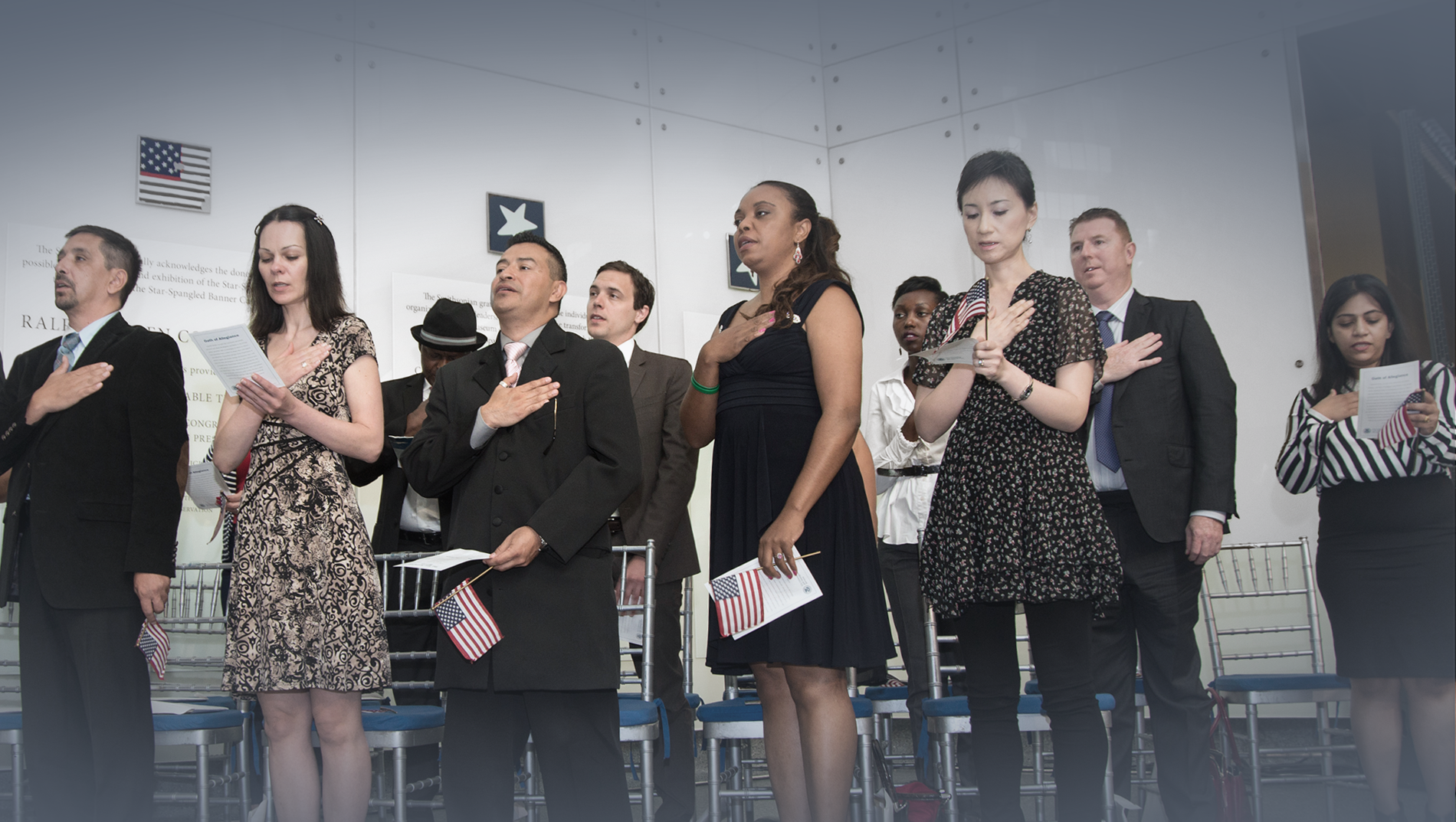Immigration 101
The U.S. immigration system is complex and can be difficult to understand. These resources provide key data points, historical information, and background on hot topics in immigration. Learn the basics about immigration. Immigration in the United States is complex and ever-evolving. Start here to understand the fundamental aspects of immigration policy, its history, and its impact on both individuals and the country at large. Learn commonly used terms about immigration law and how the U.S. immigration system is designed. Explore layered topics like how and whether immigrants can become citizens, as well as what individual protections look like under the law.
How the United States Immigration System Works
- How the Immigration System Works
- June 24, 2024
U.S. immigration law is very complex, and there is much confusion as to how it works. This fact sheet provides basic information…
Read More
Birthright Citizenship in the United States
- Birthright Citizenship
- October 16, 2024
This fact sheet explains birthright citizenship, the Fourteenth Amendment, and its interpretations. Who is…
Read More
Asylum in the United States
- Asylum
- August 27, 2014
Asylum seekers must navigate a difficult and complex process that can involve multiple government…
Read More
New Report Shines Light on the Economics of Illegal Immigration
Today the Migration Policy Institute (MPI) held an event aimed at dispelling some of the most common myths about illegal immigrants and the U.S. economy and making the case that enforcement-only policies are not cost effective. MPI also released The Economics and Policy of Illegal Immigration in the United States, written by Gordon Hanson, a professor of economics at UC-San Diego. Read More

Immigrants Pull Their Own Weight
This week, the New York-based, non-partisan Fiscal Policy Institute released its long-awaited report, Immigrants and the Economy: Contribution of Immigrant Workers to the Country's 25 Largest Metropolitan Areas. The report studies the 25 largest metro areas (by population) which produce nearly one half of the total gross domestic product of the country. It shows that in the country’s main metropolises, the share of the immigrant population stacks up neatly against their share of economic output. For example, immigrants are responsible for 20% of economic output and make up 20% of the population in these 25 metropolitan areas. In other words, immigrants pull their own weight. Read More

Post Postville, Immigrants Still Vital to Iowa’s Economy
Postville, Iowa—home to one of the largest immigration raids in U.S. history—made headlines again this month when Sholom Rubashkin, owner of Agriprocessors Inc., was convicted of “all but five of the 91 business fraud charges listed in a 163-count indictment.” Although the 72 immigration charges were dropped (since they would have little impact on his final sentence), Rubashkin still faces a total maximum sentence of up to 1,255 years, according to the Des Moines Register. Justice served? Perhaps. But the people of Postville may have a different take on “justice” given the current state of Postville’s crippled economy—an economy that once, like many across the U.S. currently do, depended on immigrants. Read More

Republican Playbook on Immigration Debate Long on Emotions, Short on Facts
Senate Republicans have “thoughtfully’ provided immigration advocates with their strategy for opposing immigration reform in 2010, courtesy of a letter sent to Secretary Napolitano protesting her recent statements that immigration reform is both necessary for DHS to do its job and good for the economy. The letter, signed by twelve Republicans— including Sens. Orrin Hatch of Utah, Charles Grassley of Iowa, and Jeff Sessions of Alabama—was described by Sen. Hatch’s press statement as “taking Napolitano to task” for her remarks. It’s a playbook for the coming year, showing how to make points that are long on emotion and short on facts. Read More

“They” Are “Us”: The Devastating Effects of Broken Immigration Policy on Children in Immigrant Families
The legacy of our broken immigration system extends far beyond our borders or the job market. The price paid by families caught within the system can be devastating, especially when we fail to pay attention to the importance of integrating newcomers into American life. A New York Times editorial this week follows a study that highlights the importance of integrating new Americans and their children. Read More

New Report Shines Light on Detainee Rights Violations in Minnesota
Over the summer, three graduate students at the University of Minnesota’s Humphrey Institute interviewed immigration attorneys and public defenders to document their experiences working with detained immigrants. The result—a heartbreaking account of detainees locked away, without access to counsel or family, in a system where rights and the most minimal detention standards are routinely violated. Read More

“Strong Winds of Change” Sweep Dobbs off of CNN
Lou Dobbs, CNN anchor and self-dubbed “Mr. Independent” signed off from his nightly post on the network Wednesday night. Ending a nearly 30-year career with CNN and a long history of spreading misinformation about immigration and immigrants, his departure marks a interesting opportunity for immigration reformers to stand up for a fair and honest debate of immigration policy. Read More

Today, We Honor Our Immigrant Service Members
America will celebrate its veterans around the nation today, honoring those who have served our nation with selflessness and bravery. Included in the millions who have served are immigrants. From the Revolutionary war to current conflicts, immigrants have joined the ranks of our military to fight for and defend America since its inception. Read More

House Health Care Bill a Mixed Bag for Immigrants
Late on Saturday night the House passed its health care reform bill and put the ball back in the Senate’s court. The goal is to make health care more affordable and more accessible for millions of Americans. Once again, immigration became a major obstacle to the bill’s passage as immigration restrictionists and others pushed for harsher language and verification rules to exclude unauthorized immigrants from the bill’s benefits. Read More

Essential to the Fight: Immigrants in the Military Eight Years After 9/11
From the Revolutionary War to the current conflicts in Afghanistan and Iraq, immigrants have made significant contributions to the United States by serving in our military forces. Today, immigrants voluntarily serve in all branches of the U.S. military and are a vital asset to the Department of Defense. To recognize their unique contribution, immigrants serving honorably in the military who are not yet U.S. citizens are granted significant advantages in the naturalization process. Over the past eight years, Congress has amended military-related enlistment and naturalization rules to allow expanded benefits for immigrants and their families and encourage recruitment of immigrants into the U.S. Armed Forces. Without the contributions of immigrants, the military could not meet its recruiting goals and could not fill its need for foreign-language translators, interpreters, and cultural experts. This latest Special Report reflects on the vital role immigrants have and continue to play in keeping our nation safe. Read More
Make a contribution
Make a direct impact on the lives of immigrants.

